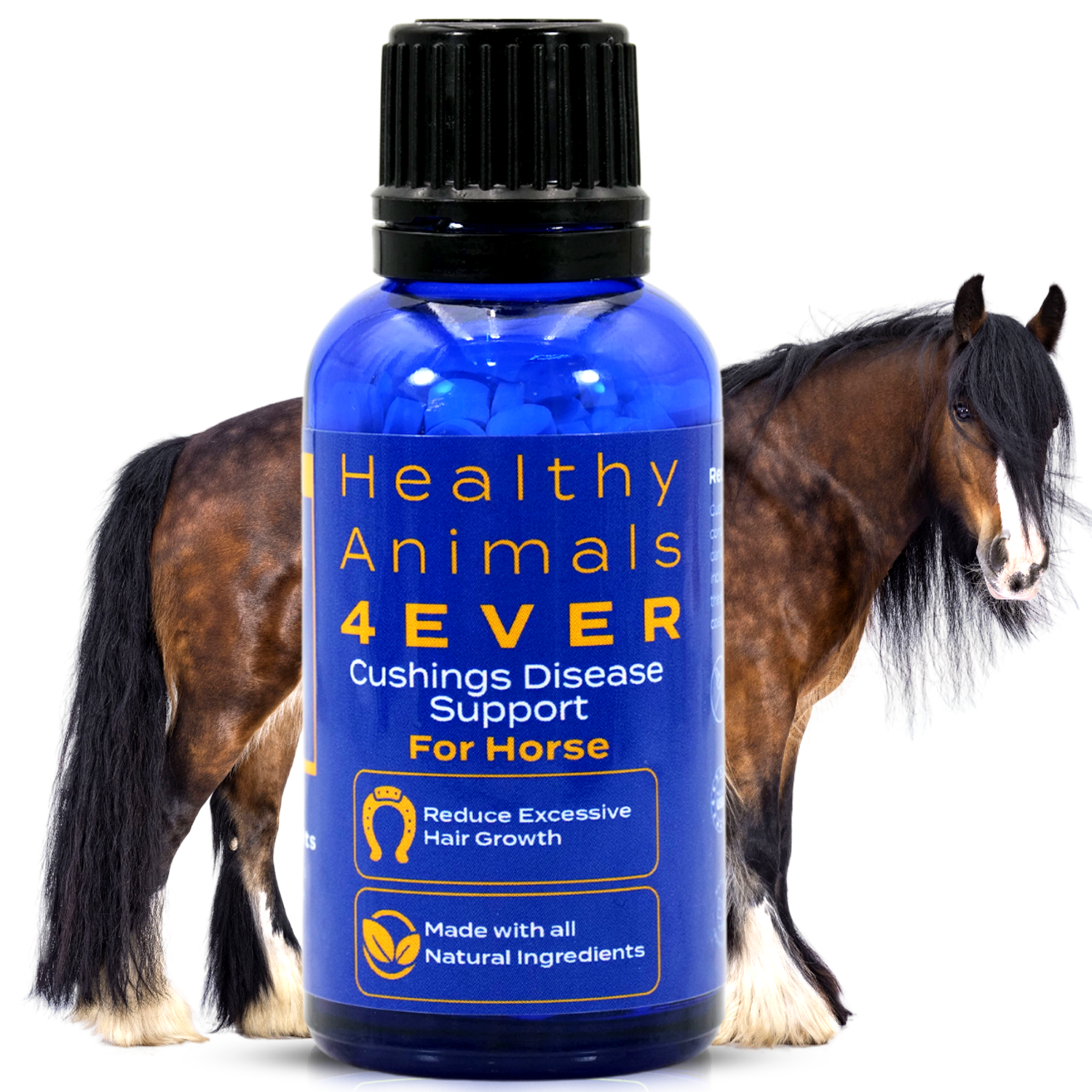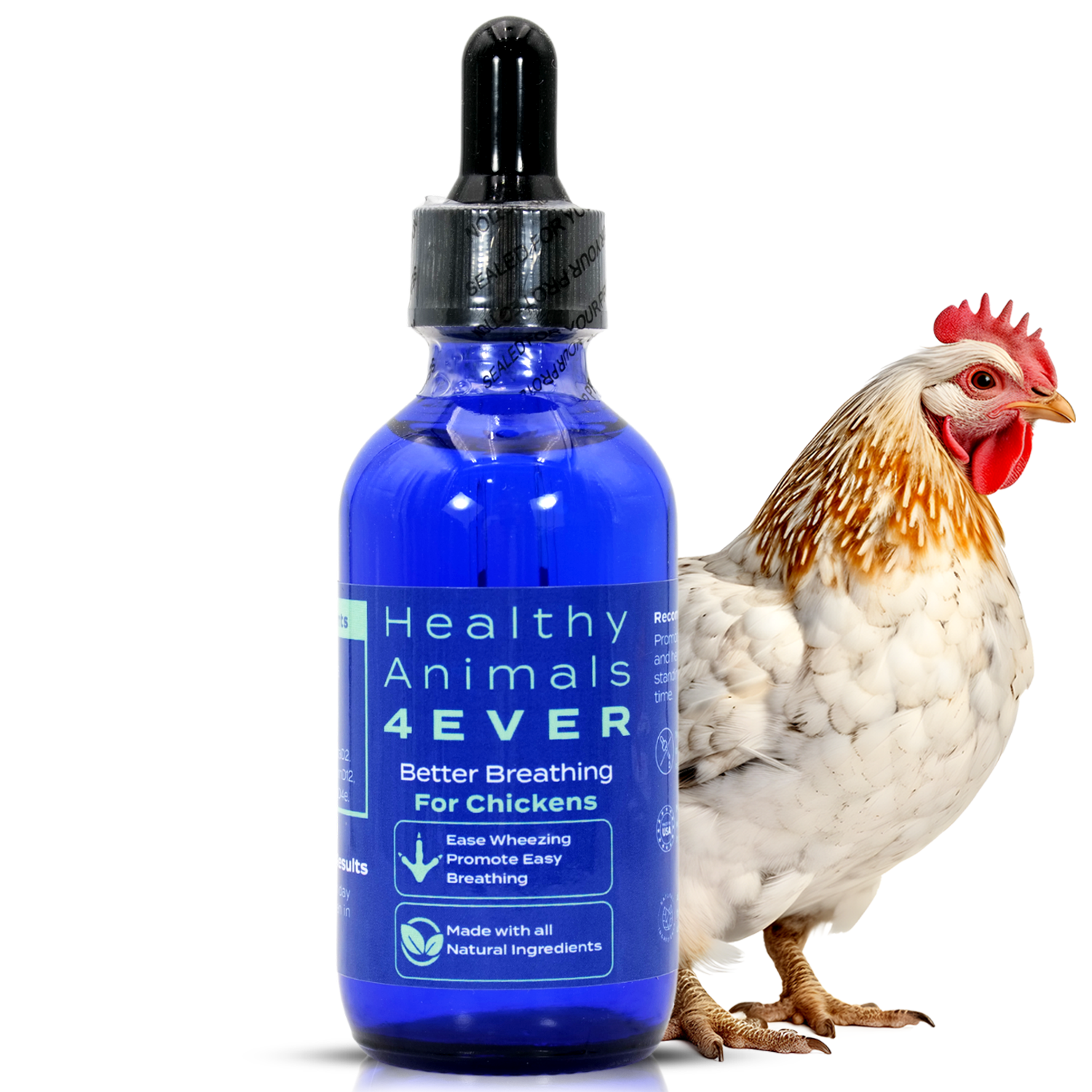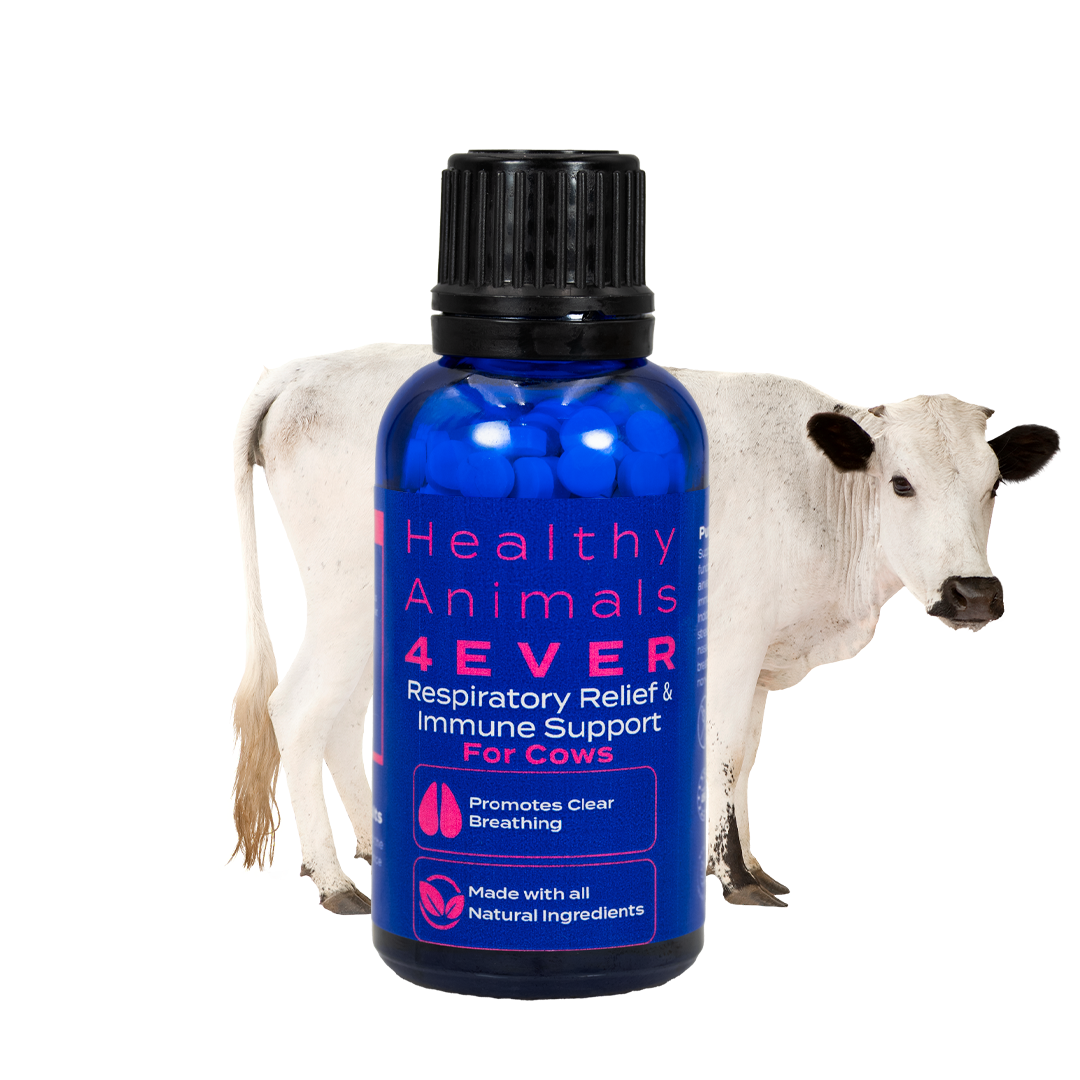Winter Wellness for Older Horses: Natural Supplement Solutions
Winter can be harsh on older horses. Aging brings natural challenges like joint stiffness, slower digestion, and reduced energy, which can become more noticeable when the colder months roll around.
This is where natural supplements can make a big difference. Unlike synthetic options, natural supplements provide gentle, adequate support without unnecessary chemicals or fillers. They're designed to work with your horse's body, helping them stay mobile, maintain a healthy digestive system, and keep their energy levels up, even during the chilliest days.
Caring for an older horse in winter isn't just about throwing a blanket over their back or ensuring they have access to hay. It's about supporting their overall health and ensuring they stay as active and comfortable as possible. Adding the right supplements to their care routine can help them handle winter's challenges and feel better all season.
In this blog, we'll examine why older horses benefit from natural supplements, how to choose the best options, and which ingredients are beneficial during winter.

Winter Challenges for Older Horses
Winter can bring unique challenges for older horses, making it a season that requires a little extra attention. As horses age, their bodies don't bounce back as easily, and colder weather highlights these vulnerabilities. Here are some of the main areas where older horses might struggle during the winter months.
Joint Stiffness and Mobility
Conditions like arthritis or general wear-and-tear on joints are common in aging horses, and the chill can make these issues worse. It's common to notice your horse taking longer to warm up or seeming reluctant to move as freely as they did in warmer weather. Without proper support, these aches and pains can affect their overall well-being.
Digestive Health
Winter diets often shift to rely more on hay or stored feed, which can be more challenging for older horses to digest. Add to that the reduced water intake typical in colder weather, and you've got a perfect recipe for digestive problems like colic or poor nutrient absorption. A healthy digestive system is essential for keeping weight on and maintaining energy, which can already be a struggle for senior horses.
Maintaining Energy Levels
The shorter days and colder temperatures can drain an older horse's energy. Winter often requires more energy to stay warm, leaving less for activity or maintaining weight. Aging horses may lose some of their ability to efficiently convert feed into energy, making it even harder to keep up with their usual routines.
Hoof Health
Cold, wet, and icy conditions increase the risk of issues like cracks, thrush, or weakened hooves, which can lead to discomfort and make movement even more challenging.
Immune System Support
Finally, older horses tend to have weaker immune systems, leaving them more vulnerable to illnesses during the winter. Exposure to fluctuating temperatures, damp conditions, or limited turnout can increase the likelihood of respiratory problems or other infections.
Hoof Issues Support is a natural remedy for hoof-related issues. Helps with cracked hooves, brittleness, and discomfort during movement. Promotes healthy hoof growth while soothing irritation. All-natural formula. Safe and gentle for all horse breeds.
Benefits of Natural Supplements
Natural supplements can be a game-changer for older horses, especially during winter. They provide targeted support to help your horse feel their best, even when the weather isn’t on their side. Let’s look at some of the main ways these supplements can help.

Supporting Joint Health and Mobility
Ingredients like glucosamine, chondroitin, and MSM are well-known for supporting cartilage and reducing stiffness. They help keep your horse's joints more flexible and comfortable, making it easier for them to stay active despite the cold. Herbs like turmeric and boswellia are also great for their natural anti-inflammatory properties, which can reduce swelling and discomfort in sore joints.
Promoting Digestive Health
Winter diets often include more hay and less fresh grass, which can make digestion harder for older horses. Natural supplements with probiotics and prebiotics support gut health by promoting a healthy balance of bacteria in the digestive system. Ingredients like slippery elm and aloe vera can soothe the stomach and help prevent issues like colic or discomfort. These supplements also improve nutrient absorption, ensuring your horse gets the most out of their feed.
Boosting Energy and Vitality
Natural supplements with adaptogenic herbs like ginseng or ashwagandha help maintain energy and stamina, while omega-3 fatty acids from sources like flaxseed or fish oil support overall well-being. These ingredients can give your horse the extra boost it needs to stay active and maintain its weight through the winter.
Strengthening the Immune System
A strong immune system is key for staying healthy during the colder months. Natural supplements with antioxidants like vitamin C, vitamin E, and selenium help protect your horse’s cells from damage and strengthen their defenses against illnesses. Herbs such as echinacea and elderberry can also provide immune support, reducing the likelihood of your horse catching a winter bug.
Improving Coat and Hoof Condition
Biotin, zinc, and other nutrients found in natural supplements support healthy hoof growth and strength, reducing the risk of cracks or damage. Omega-3s and omega-6s promote a shiny coat and healthy skin, helping your horse look and feel good even in the middle of winter.
Horse Wounds Support is designed for wound care. Natural therapy for pain and inflammation in injured areas. Useful for wounds with bacterial infection or other harmful factors. All-natural formula. Safe and gentle for all horse breeds.
Homeopathy for Older Horses: What to Know
Homeopathy is a holistic approach to health that some horse owners turn to for natural, gentle support. It involves using highly diluted substances to address specific health concerns and promote overall balance in the body.

How Homeopathy Works
The principle behind homeopathy is “like cures like.” This means that a substance that might cause symptoms in a healthy animal can, when highly diluted, help alleviate those same symptoms in an unwell animal. For instance, if a horse is anxious, a homeopathic remedy made from a substance known to cause restlessness might be prescribed in its diluted form.
Common Homeopathic Remedies for Older Horses
Some common remedies used for older horses during winter include:
- Arnica: Often used to support muscle recovery and manage soreness, especially after activity.
- Rhus Tox: A popular choice for horses with stiff joints, particularly in cold or damp weather.
- Nux Vomica: Typically recommended for digestive issues, such as bloating or constipation.
- Calcarea Fluorica: Believed to support joint and bone health, making it a go-to remedy for arthritis.
- Aconite: Sometimes used for horses that experience stress or anxiety due to sudden weather changes.
Incorporating Homeopathy Into Winter Care
If you’re considering homeopathy for your older horse, think of it as part of a broader care plan that includes proper nutrition, supplements, exercise, and regular check-ups. Homeopathy might help address concerns or provide extra support for chronic issues like stiffness or digestive troubles, especially in the challenging winter months.

Anemia Support is a natural remedy for anemia. Specially designed for low red blood cell production. Supports healthy blood levels. Boosts energy and vitality. It may help improve oxygen circulation. All-natural formula. Safe and gentle for all horse breeds.
How to Choose the Right Supplement for Your Horse
Finding the right supplement for your older horse can feel overwhelming with so many options available. But with some knowledge and careful consideration, you can make a choice that suits your horse's specific needs. Here are some practical tips to help you decide.

Understand Your Horse’s Needs
Start by assessing what your horse could use extra support with. Is joint stiffness becoming an issue? Are they losing weight or struggling with energy? Does their digestion seem off, or are you concerned about their immune system? Knowing what your horse needs makes it easier to focus on supplements that target those areas instead of getting distracted by unnecessary products.
Talk to a Veterinarian or Nutritionist
It's always a good idea to consult your veterinarian or an equine nutritionist before introducing new supplements. They can help you determine what's safe and effective for your horse based on age, health conditions, and any medications they might be on. Professionals can also point out ingredients to avoid if your horse has sensitivities or allergies.
Choose with Knowledge
Look for supplements made with high-quality, natural ingredients. Avoid products with unnecessary additives, fillers, or artificial flavors. A good supplement should be straightforward about what's inside, with recognizable ingredients like glucosamine for joints, probiotics for digestion, or omega-3s for overall health. If you see a lot of chemical-sounding names or vague descriptions, that's a red flag.
Not all supplement brands are created equal. Look for companies with a strong reputation for quality and transparency. Read reviews from other horse owners and check if the brand follows good manufacturing practices. Some companies even get their supplements tested by third parties to ensure they contain what they claim and are free of contaminants.
Supplements come in various forms, such as powders, pellets, liquids, or treats. Think about what’s easiest to mix into your horse’s feed or what they’re most likely to eat. For example, some horses are picky and may refuse powders, while others have no problem with them when mixed into soaked feed.
If you're new to supplementing, it's best to introduce one product at a time. This way, you can monitor how your horse responds and notice any changes, better mobility, improved digestion, or increased energy. Starting with too many supplements at once can make it hard to tell what's working.
While you want the best for your horse, choosing a supplement that fits your budget is essential. Natural supplements can vary widely in price, so look for something affordable but still high-quality. Sometimes, more straightforward formulas with fewer ingredients can be as effective as pricier ones.
Arthritis Support is a natural remedy for arthritis in horses. Helps with arthritis pain and inflammation. Provides targeted joint health support. All-natural formula. Safe and gentle for all horse breeds.
Tips for Administering Supplements During Winter
Adding supplements to your older horse's care routine during winter can make a big difference in their overall health. However, knowing how to introduce and manage them effectively is just as important as choosing the right product. Here are some practical tips to help you get the most out of your supplements.

Make It Part of Their Routine
Horses thrive on consistency, so it's a good idea to give supplements simultaneously each day. This helps them get into the habit of expecting it and makes it easier for you to track whether they've had their daily dose. Many horse owners find it easiest to add supplements to their morning or evening feed.
Mix Supplements Into Warm Feeds
During winter, your horse might enjoy their feed served warm, especially if the weather is particularly cold. This can also help encourage them to eat supplements they might otherwise be reluctant to try. Just be sure the feed isn't too hot, as extreme heat can sometimes reduce the effectiveness of certain supplements, especially those containing probiotics.
Introduce New Supplements Gradually
If you’re starting your horse on a new supplement, introduce it slowly over several days. Begin with a small amount and gradually increase to the full recommended dose. This gives their digestive system time to adjust and helps you monitor for any potential reactions, like changes in appetite or behavior.
Keep Supplements Dry and Fresh
Winter weather often brings dampness and freezing temperatures, which can affect the quality of your supplements if they're not stored properly. Please keep them in a dry, cool place, and make sure the container is sealed tightly to prevent moisture from getting in. Some supplements, like flaxseed-based products, are prone to going rancid, so check expiration dates regularly.
Be Aware of Feed Competition
If your horse shares a paddock or turnout with others, ensure they get their full dose of supplements. Feeding supplements in a private space can help ensure no other horses steal a bite, especially if the supplement is critical for your horse's health.
Monitor Their Response
Once your horse is on a supplement, monitor their condition. Are they moving more comfortably? Has their digestion improved? Do they have more energy? Subtle improvements can take time, so patience is key, but you should start to notice positive changes after a few weeks.
Watch for Seasonal Adjustments
Winter brings unique challenges, but it’s also a good time to reevaluate your horse’s supplement needs. If you’re noticing that your horse is still struggling with a specific issue, like stiffness, digestion, or weight, despite the supplements you’ve chosen, it might be worth consulting with a vet or equine nutritionist to see if you should adjust their regimen.
The Bottom Line
Winter can be a challenging time for older horses. Still, with the proper care, they can stay healthy, comfortable, and active. Natural supplements are an excellent way to give your horse extra support during the colder months. They can help ease joint stiffness, promote better digestion, boost energy levels, strengthen the immune system, and improve overall well-being.
The key is choosing high-quality, natural ingredients that match your horse's specific needs. These small additions to their care routine can make a big difference. Pairing supplements with good nutrition, regular exercise, and extra attention during the winter months can help your older horse thrive.











